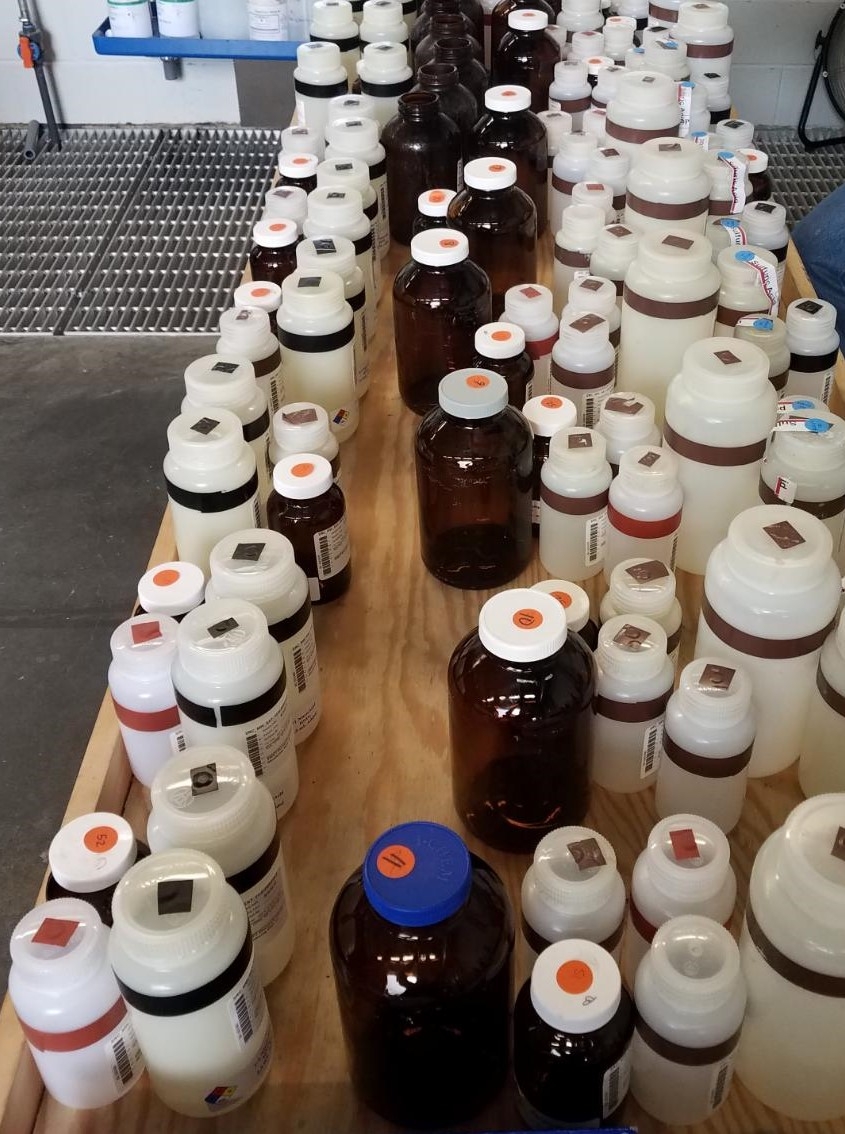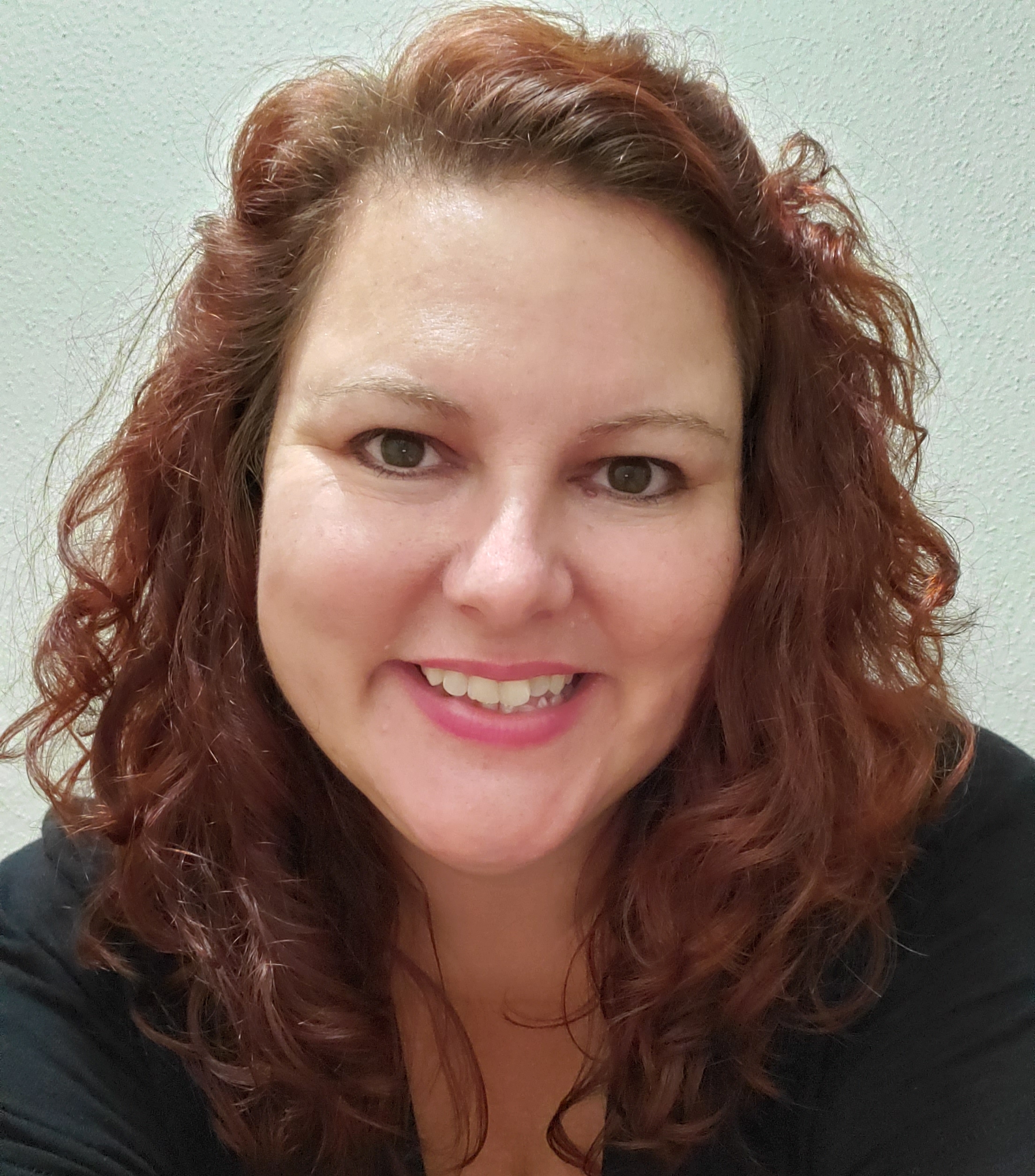OMNR alumna Jenny Reitz applies systems thinking to water quality.
March 23, 2021

By Lindsay Key
When Jenny Reitz began Virginia Tech’s Online Master of Natural Resources (OMNR) program in 2013, she was no stranger to the environmental issues surrounding water quality. After graduating from Old Dominion University with an undergraduate degree in Geology, she had worked for ten years as a water quality specialist in various municipalities in the Hampton Roads area.
In these roles, Jenny was involved with sample collection, field analysis, program development, and emerging research to help develop processes and technologies to remove harmful chemicals from groundwater, stormwater, and wastewater. The OMNR program introduced Reitz to a new way of thinking about her everyday work through its emphasis on leadership development and systems-wide thinking.
In 2014, during her second year in the program, she was promoted to a supervisory role at her employer, Hampton Roads Sanitation District (HRSD). As Water Quality Supervising Specialist, she leads a team of people responsible for providing critical support to the HRSD’s regulatory and research programs. One such program is known as Sustainable Water Initiative for Tomorrow (SWIFT). The goals of SWIFT are to treat wastewater to meet drinking water standards and to replenish the Potomac aquifer, the primary source of groundwater for the region. Jenny’s team is responsible for monitoring the water once it is put in the ground.

A systemic approach to complex issues
Water quality teams around the world face multiple, mounting challenges when designing effective water treatment plants. Jenny’s team monitors the highly-treated water to ensure that it meets human health standards and that the aquifer is protected for its more than 1.7 million customers. Each water quality team also faces environmental and economic challenges specific to their location. For Jenny and her team, they must work to combat saltwater intrusion from the Chesapeake Bay, which has been exacerbated by sea-level rise, and water withdrawal and contamination from nearby industries.
Jenny credits the OMNR program with helping her to better understand the interconnectedness of these health, economic, and environmental challenges. It also provided her with the leadership skills necessary to work with people at all levels to find sustainable, compromise-driven solutions. The Water Conflict and Management course gave her a birds-eye view of where her own water system fits into the regional, national, and global picture.
“Really, what I got out of the program the most was the systemic approach to the environment—that, ultimately, everything is connected,” said Jenny. “If we want to provide clean drinking water for future generations, it’s not so much of an issue here on the East Coast where we have plenty of water—maybe sometimes even too much—but in places out West where we’re having shortages. It helped me understand that the types of research we’re doing could really have an impact nationwide.”
Jenny graduated from the OMNR program in 2016. In 2018, she helped drive the HRSD’s opening of a new SWIFT Research Center by providing data from her team’s monitoring efforts. The mission of SWIFT is to ensure a sustainable source of groundwater while addressing environmental challenges such as Chesapeake Bay restoration, sea-level rise, and saltwater intrusion. The Research Center is currently replenishing up to one million gallons a day into the Potomac Aquifer. At full-scale, HRSD intends to increase that amount to 120 million gallons a day.
Keeping water clean and people safe
Recently, research efforts at SWIFT have focused on finding better ways to identify and eliminate polyfluoroalkyl substances (PFAS) and other emerging contaminants from public waterways. PFAS are a group of harmful industrial contaminants known as “forever chemicals” because they don’t break down and can accumulate over time, according to Reitz. They are found in products like nonstick pans, food packaging, waterproof jackets, upholstery, and carpets. When ingested in large amounts, the chemicals have been found to lead to cancer, low infant birth weights, hormone disruption, and effects on the immune system.
The SWIFT team is actively working to incorporate technologies that will most efficiently and effectively eliminate PFAS from the water system. When it comes to water contamination, said Jenny, “There are things we know about but also things that we don’t know about, and my team is protecting us from both—keeping people safe from the contaminants we do know about, but also doing the research and putting in the time to make sure that we’re working to identify new contaminants that have the potential to harm us, that we have yet to discover.”



